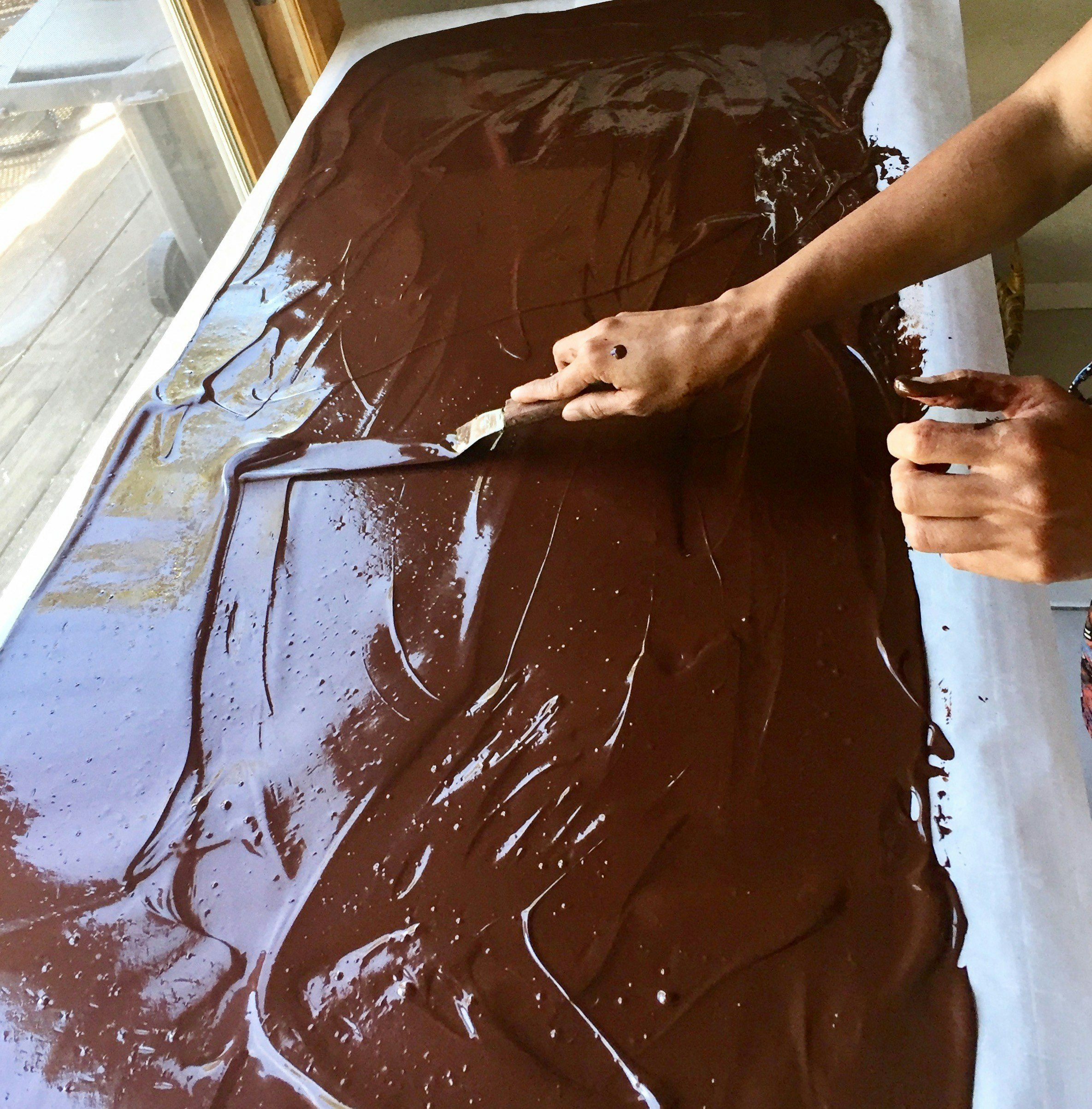A Conversation with Cru Chocolate
Makers, Mongers, & ExpertsAPR 20, 2023
To celebrate Hispanic Heritage Month, we sat down with Karla McNeil-Rueda, co-founder of Cru Chocolate, a certified B-Corp that takes pride in sourcing its cacao from the Caribbean and Mesoamerica. Karla has an educational background in Engineering and Sustainability, and studied at the Chocolate Institute of Latin America and the Caribbean. Together with her partner, Eddie Houston, they founded Cru Chocolate. We spoke with Karla about ingredient sourcing, labor in the chocolate industry and how her heritage continues to influence her relationship with food.
In what ways did your heritage influence the traditions you grew up with? Especially as they pertained to familial gatherings and what you ate?
While growing up we see our heritage influencing our traditions not just in what we eat as people of corn and cacao, but also in how we feed others. For us eating is as important as sharing, so family gatherings are a display of opulence and abundance of the land and of the people that is shown in the diversity of plates and in the abundance of foods. This rich hospitality and this sentiment of nourishment is what made my family very special, we always had a lot to give, not because we were rich but because you had gone out and done the gathering and the picking.
How did you select which countries you would source your product ingredients from?
We selected Central American countries because that is where chocolate was invented by the Mayan people and we also worked with Caribbean Countries because the contribution of African and native cultures in these areas to the enrichment of chocolate in the world is undeniable, they also have rich traditions of drinking chocolate and uses of cacao with medicinal purposes. So we are constantly learning from them constantly, I am also from Honduran with a Caribbean Father so I might be biased.
How was your educational background in sustainability influenced your decisions in creating your business?
While doing my masters in sustainability management I did my cap-stone project in measuring the sustainability of specialty coffee in my hometown in Honduras, this helped me reconnect with many people that I had known as a child . After hours of interviews, I realized how much traditional and scientific knowledge they had and this inspired me. For the first time I was seeing and appreciating the farmers as a source of scientific knowledge and not as someone who needed help. It was while having a cup of chocolate while interviewing a coffee farmer that I realized we were doing everything backwards. That cacao grown in agroforestry systems could be a great alternative to coffee farmers who won’t be able to grow coffee in 20 years due to climate change and that the amount of nutrients and energy in a cup of cacao have not comparison with coffee, my first thought was this is even better for the kids, they should be drinking more chocolate anyway. This really gave me fuel to start my business.
Why is it important to you to preserve traditional recipes/foods?
Recipes are very personal and valuable to many people, but for me it is not about preserving the recipe as it is to preserve the ingredients. Recipes are like mirrors that express what we are cooking/eating now and they might depend on where and who you are living with right-now and that can change at any moment. People and taste buds change, just as cultures change and so do recipes. The ingredients, the plants, the animals and even the people caring for these plants are the ones at the verge of extinction but not recipes. Humans will create new ones as long as they have the ingredients, but without ingredients there is no recipe.
If you could improve the food industry in some way, how would you do it/how have you already done this?
Labor, has to be improve, there is modern slavery from Canada to China, people farming and making the food are many times forced by governments, overseers or by circumstances like migration and war to work in inhumane conditions. This needs to change and is more likely to happen with laws and policies that warranties human rights and by corporations being held accountable for the effects that their sourcing practices or partnerships have in the planet and in people.
Do you have a favorite traditionally Latino/Hispanic/Latin-adjacent food to make at home?
I make my own tortillas at home and just the smell can transport you places. I eat them with beans, sweet plantains, sliced avocado, fresh cheese, and pickle red onions. We eat that all the time. they are also great just with lime and salt, anything will taste better with a freshly made tortilla from heirloom corn.
Explore more
Share
